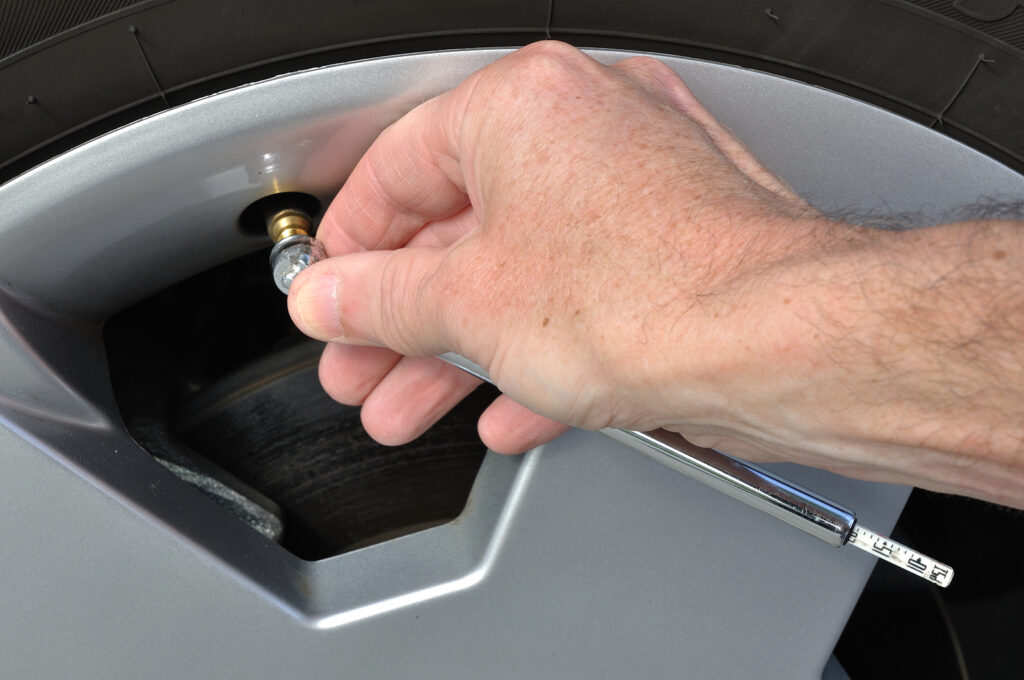Everyday errands and daily commutes are not something we put a lot of thought into, but before leaving on a long distance drive, it is important to pay closer attention to the condition of your vehicle. Not only will this guarantee a streamlined and time-efficient journey, but it will also ensure your safety as well as the safety of your passengers and other drivers on the road.
Continue reading to learn how to check your car before going on a long distance road trip, plus what to do in an emergency roadside situation if something happens along the way.

Road Trip Safety Starts With a Car Inspection
A key element of road trip safety is the pre-trip car inspection. It is important to ensure that your vehicle is well-equipped to deliver safe and smooth driving from start to finish. Although it is encouraged to examine as many areas and systems as you like, when performing a pre-trip vehicle inspection, focus on mirrors, horn, windshield, lights (interior and exterior), tires, strange sounds, and warning lights on the dashboard.
Mirrors and Horn
Your car mirrors will play a large role in the safety of your commute when traveling long-distance. Not only do you want to ensure that your mirrors are in good condition, meaning they are free of chips and cracks, but you also want them to be clean, clear, and properly positioned so that you are able to see around your vehicle when in the driver seat. Additionally, check to see that your horn sounds loud and not muffled in any way. Your horn can be an essential safety tool on the road.
Windshields
There are a few elements to inspect when it comes your car’s windshields. First, be sure that your front and back windshields are free of cracks and chips. If your windshield has damage, you must repair the damage before leaving on a long distance road trip. Too many hazards can arise from a cracked or chipped windshield, especially at high speeds.
Also, be sure that your windshield wiper fluid is filled all the way and you have an extra bottle in the trunk for re-fills. Last, be sure your windshield wipers are in good condition. They are easy and inexpensive to replace, so you might want to upgrade regardless. Quality wipers make a world of difference in bad weather or unexpected splashes.
Lights
When it comes to inspecting your car lights, be sure to cover the interior cabin lights as well as the headlights and taillights. Also, be sure your turn signals, reverse lights, hazard lights, and marker lights are working. If your lights are dimmer than they usually are, you might need to inspect the car battery or alternator. You might also want to throw in a set of jumper cables in your trunk in case your battery dies on the road.
Tires
The quality of your tires will impact your gas mileage, drive stability, road traction, vehicular performance, and even steering. Before you leave on a road trip, check both tire pressure and tire tread. Use a tire pressure gauge to check the tire pressure in each tire. Use a penny to test the thread depth. Stick a penny inside a groove, upside down. If you see Lincoln’s head, your tire tread is too low. Be sure to check each tire!
New Noises
Before leaving on a road trip, it is important to listen to your vehicle. Start by turning your car on and listening for any strange or new sounds while the engine sits in idle. Then take your car for a short drive and listen for any other sounds that are out of the ordinary. Strange noises, either new or existing, and diagnosed. Sometimes, weird noises in your vehicle are a sign of a more serious mechanical problem.
Illuminated Warning Lights
Sounds are not the only warning sign of an underlying mechanical issue in a vehicle. Pay attention to your dashboard before leaving on a long-distance road trip. If any warning lights are illuminated, it is encouraged to have them diagnosed before hitting the pavement. You do not want to run into any roadside emergencies or serious breakdowns in the middle of your trip!
If you ever breakdown in or around Central Indiana, do not panic. You have a qualified roadside emergency response team on your side! Just call Zore’s Towing at 317-247-8484 for 24 hour roadside assistance and towing in Indianapolis, Indiana, and its surrounding counties.
Related Posts:
What to Do if Your Car Overheats Every Time You Drive it a Long Distance
How to Do a Pre-Trip Check Before Hitting the Road With Your Trailer
DIY Roadside Assistance Tools to Always Have in Your Car
